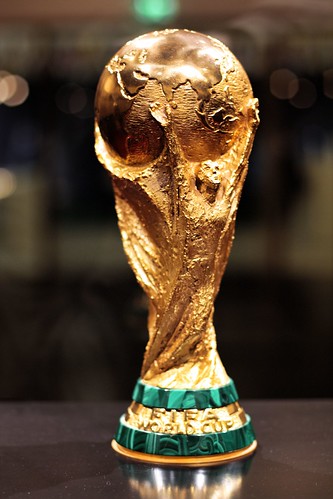The World Cup As An Investment Option
With the world cup in South Africa round the corner, we thought it would be appropriate to take a closer look at the world cup and the global soccer industry, from a financial angle.
 |
| Photo by bartek.langer at http://www.flickr.com/photos/bartek2205/ |
Is there a good case for financial investment in such sporting events? How can an investor score an investment triumph with the soccer industry in general and with the world cup in particular?
To begin, let us take a look at the financial report 2009 of FIFA, the world governing body of soccer and the world cup.
Extracts from FIFA Financial Report 2009:
In 2009, FIFA recorded revenue of USD 1,059 million and expenses of USD 863 million, producing a net result of USD 196 million.
FIFA’s competitions and the 2010 FIFA World Cup South Africa™ in particular had a significant impact on the 2009 financial year.
FIFA’s events generated USD 1,022 million of the total revenue of USD 1,059 million, i.e. 97%. The lion’s share of this figure was attributable to the sale of television (USD 650 million) and marketing (USD 277 million) rights.
The other operating income of USD 22 million was predominantly attributable to brand licensing and the FIFA Quality Concept. FIFA’s financial income of USD 15 million mainly came from interest.
Event-related revenue in Thousands US Dollars:
Revenue from television broadcasting rights 649,957
Revenue from marketing rights 277,266
Revenue from licensing rights 10,184
Revenue from hospitality rights 40,500
Other event-related revenue 43,843
Total event-related revenue 1,021,750
As at 31 December 2009, FIFA’s balance sheet totalled USD 2,104 million, with equity of USD 1,061 million, signifying that FIFA has reached a solid equity level.
FIFA will make total payments of USD 420 million to the participating member associations, and the clubs of participating players, in connection with the 2010 FIFA World Cup™.
The 2010 FIFA World Cup™ winners will receive USD 30 million, while teams that go out in the group stage will each collect USD 8 million.
In addition to the prize money, each participating association was granted USD 1 million as a contribution towards its preparation costs.
Around three million tickets are available for the 64 matches of the 2010 FIFA World Cup™ being held across the ten stadiums in South Africa. The net revenue from ticket sales will go to the Local Organising Committee.
The tickets are being sold around the world in US dollars, but fans in South Africa can purchase them in South African rand (ZAR). This protects South Africans from the exchange rate risk and gives them exclusive access to the lowest-priced tickets in category 4, where a group match costs ZAR 140 (around USD 20).
We have given you a brief peep at the financial statements, although many details are not stated. You can crunch the numbers and do the sums for yourself to see if it is worth investing.
The world cup as an investment option is pretty limited. You can't invest in FIFA or the national soccer teams.
You could find the suppliers and related companies to invest in. You could seek out opportunities at the venue of the world cup that benefit from the infrastructure developments.
Or you could take your chance and put a wager on the soccer team that you think might win the world cup.
No comments:
Post a Comment
Note: Only a member of this blog may post a comment.